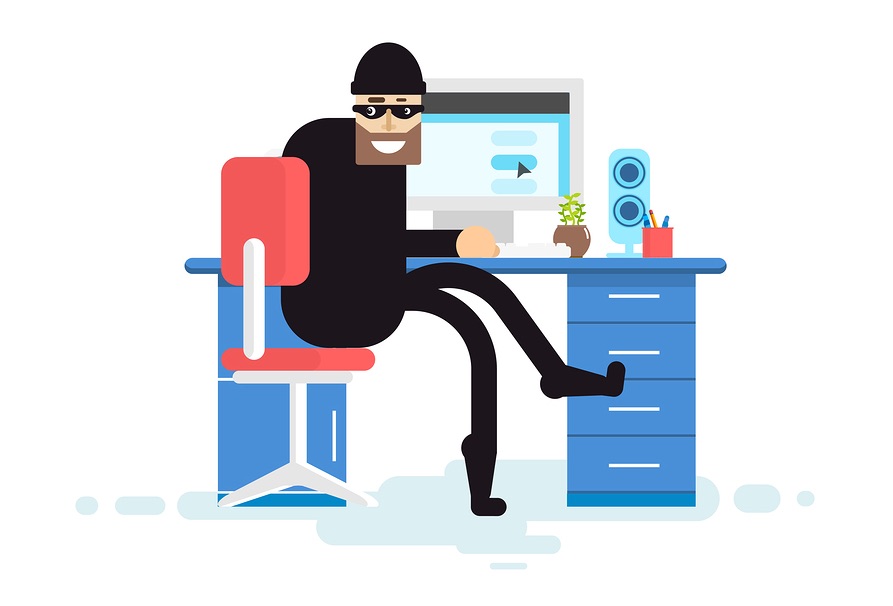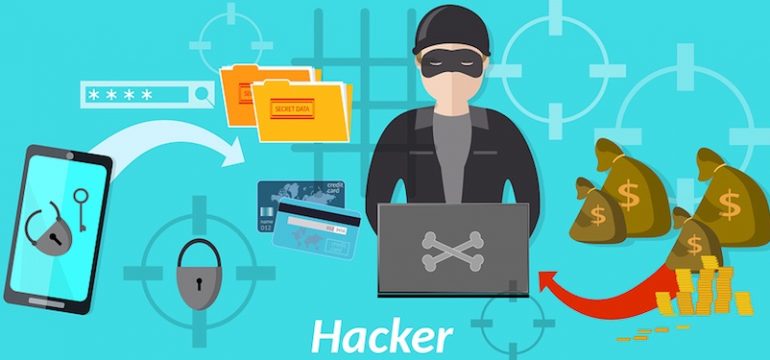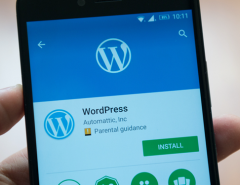Copyright is important when it comes to creating digital content and content for your business website. You must guard your content, your web assets, and other digital property like you would guard your home, car, or brick and mortar building.
When you own business, especially a business online, you realize the risks involved in putting up information and media, articles, and other intellectual works on your website. It is, after all, the world in which anyone with internet access can see and download your site content. This is something site owners and brands of all sizes must consider when creating content online.
In the past, you had to secure a federal registration for your work to be able to say that you are copyright claimant. Now, with so many works being created and displayed online, you automatically are considered the copyright owner once a work is created “in a tangible form.” That being said, for works that you expect to go viral or which may potentially increase your revenue, it may be worth the trouble and fees you’ll pay to register it.

How will your stolen content be used?
Part of copyright law is for the purpose of protecting how your content is used. It is not simply to ensure that you make money with the content. In fact, unless you are an independent author or producer, you are probably more concerned about how your content will be used rather than the loss of revenue you might experience from the content.
But if you have some outstanding articles, videos, or other content on your website, you could very well also lose revenue and potential income due to theft.
Whatever the case, your concerns are understandable, and you should do everything possible to keep others from infringing on your rights.
How to Protect Your Content
First, let’s talk about how to protect your web content. There are some things you can do to keep others from being able to steal it. This won’t guarantee that no one will be able to figure out a way around it, but these are some good measures you can take to reduce the likelihood of theft.
- Use the copyright symbol on all intellectual works.
- Use watermarks on videos and photos.
- Use WP Copy Protect for WP sites.
- Disable photo and video downloads.
- Don’t include downloadable files.
The Creative Commons License
Sometimes announcing that your work is copyright-protected as “all rights reserved,” can scare off potential customers or clients with a legal warning. It can leave a bit of a bad taste in their mouth. Even though you are fully justified in being somewhat threatening about illegal use of your work, you could consider sharing at least some of your content with others without legal penalty with a Creative Commons license.
If you are digital media business owner, you would likely not want to take this approach, especially if you are in it to make money from digital downloads or your online content. Writers, producers, and others would want to continue using the standard copyright notice and guarding your content in that way.
As a basic rule, if you make money from your content outside of it being an asset on your website, stick to the basic copyright notice. If you are a business outside of that, you could use the Creative Commons license to allow limited sharing with others. When you share your content without fear of legal retaliation, you may encourage relationships with other businesses or clients that may lead to sales.
This is a choice you have to make, and you should base your decision on whether you want full protection or limited protection on your site content.
What to Do When Someone Steals Your Content
When you are convinced someone has stolen your content and you have a full copyright protection (either common law or statutory copyright), there are some things you should do to take action.
1. Notify your site administrator or web server. Some web server administrators will help you with this issue and may go after the people involved if they know who they are. You may not get monetary compensation, but you may at least have the content removed from the duplicate site.
2. Report it to DMCA– The Digital Millenium Copyright Act protects you from having others infringe on your rights of copyright. If you had your work clearly copyrighted and others have used your graphics, articles, videos, or other web content without your permission, you can report it here and they will help you. If the report turns out to be true, they can use legal action to take down the infringing site.
3. Report it to Google. You can search Google’s search engine to see if anyone has duplicate content to your website. Remember that there may be some similarities as topics are often revisited and graphics can be very similar at times. But the content must be done in a unique way. Blatant copying of your work is prohibited, unless you have allowed this through a Creative Commons type license. If you find someone has infringed on your work, report it to Google to file a formal complaint about the duplicate content.
4. Report video theft to YouTube. YouTube, like Google, is adamant about observing copyright law and protecting the rights of authors, video producers, and content providers. If the theft involves a video, file a complaint with YouTube.
5. File a lawsuit. This is a more drastic measure, but if all other methods have been exhausted, you may have to resort to this. Keep in mind, however, that you will not have the ability to file a federal lawsuit for copyright infringement if you do not have the work legally registered with the Office of Copyright. This should be done before publication of the work. Using the “common law copyright” statute is not usually enough unless you have carefully documented and can show proof of ownership.
Most business owners will not want to invest the time, money, and legal resources to filing a federal lawsuit for content that is only meant to promote their business and brand. Like anything, you will always want to weight the level of potential financial loss, legal risk, and other factors when deciding whether to file a lawsuit for copyright infringement or even whether to legally register a work.
The Case for Federal Registration
Registering work does give you more advantages if you do have to seek a claim. But the cost can outweigh the benefits.
Inappropriate Usage Issues
Sometimes issues involving inappropriate use come into the equation. In these cases, such as the inappropriate use of your web content on an offensive pornography site or some other attempt at character assassination, must be dealt with swiftly to avoid having your online reputation damaged for good.
One solution to watch out for these things is to start with a dedicated web server who can keep a watchful eye on your content and help you in the event of a problem.
At webdesignteam.com, we take care to create and maintain your website in a way that discourages theft, and we keep your security as the website owner in mind at all times. While we are not attorneys or legal representatives, we do know the law regarding copyright of web content, and we can help you make sure your site is secure from possible theft.
If you have any problems with your website content or design either before, during, or after we finish our work, contact us and we can help. With dedicated professionals helping you reach your website goals, you’ll know that help is just an email away.





Leave a Reply